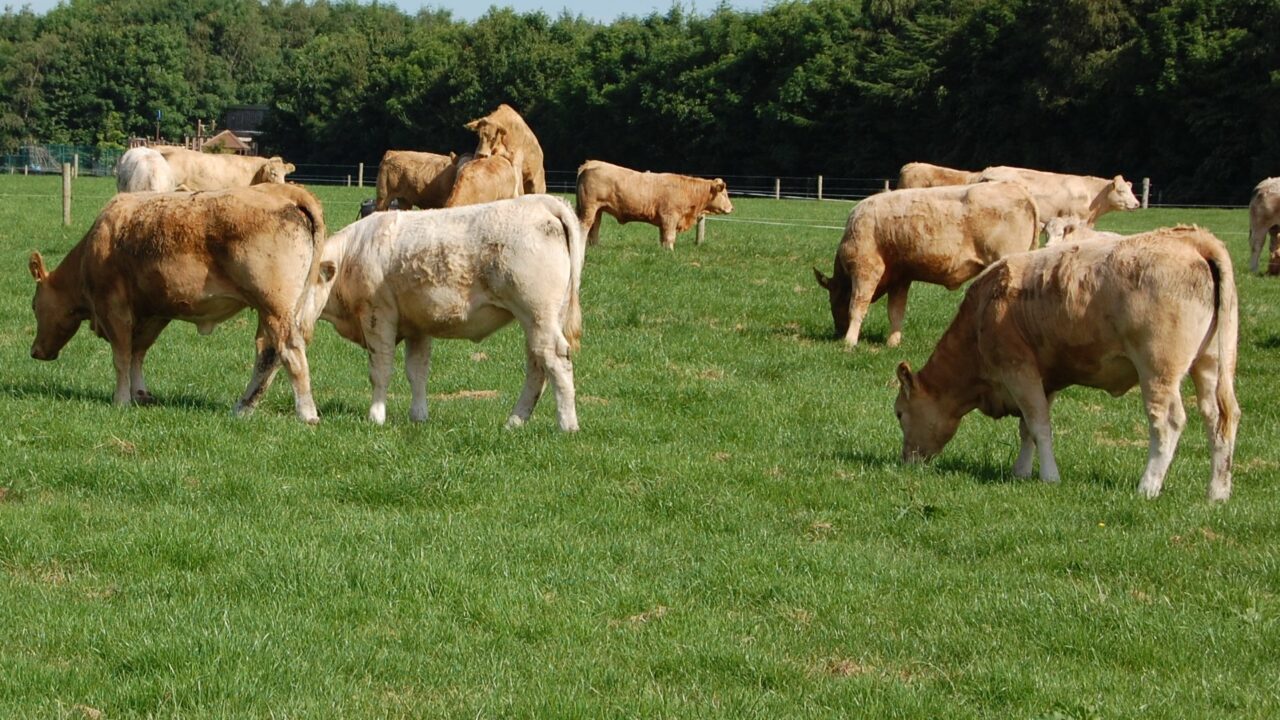The recent wet weather has decreased soil moisture deficits and allowed grass growth levels to turn in favour of farmers in some parts of the country.
As the weather is now cooler and pastures are lush in certain parts of the country, there is an increased risk of bloat in all types of cattle. There is also an increased risk of bloat when dew is present on grass in the morning time.
Bloat commonly occurs when cattle graze pastures dominated by lush, immature, rapidly-growing legumes – such as clovers.
This results in the build up of gases within the rumen as fermentation takes place; it is common from August on, when sward clover content is at its highest.
It is important to be aware that any change of diet in a herd can cause digestive challenges and new diets should be introduced gradually.
It should also be noted that clover growth may increase quickly after the prolonged dry period and due to the lack of nitrogen (N) fertiliser spread on land over the last few months.
- Swelled left abdomen;
- Reduced appetite;
- Rapid breathing;
- A reluctance to move;
- Livestock appear distressed;
- Bulging eyes;
- Staggering.
Prevention of bloat
Severe cases of bloat can lead to death, so – therefore – prevention is important. Bloat can be prevented by good grassland management practices.
Allowing cattle to strip graze lush pastures / clover-rich swards – especially if they are hungry – will reduce the risk of bloat; this also allows the rumen to adapt to the sward.
Identify high-risk paddocks and monitor stock on these pastures. The addition of hay can be a good source of fibre for cattle and reduces the risk of bloat.
The addition of bloat oil into the water is an effective and easy way to prevent bloat in the herd, as it acts as an anti-bloating agent.
When administering bloat oil, it is important that it is given accurately and uniformly across the herd in all weather conditions.
One solution is the Terra Liquid Minerals Controller, which ensures effective dosing of its Vital Range bloat oil to all animals around the clock in the water supply; it is accurate when it comes to bloat prevention.
